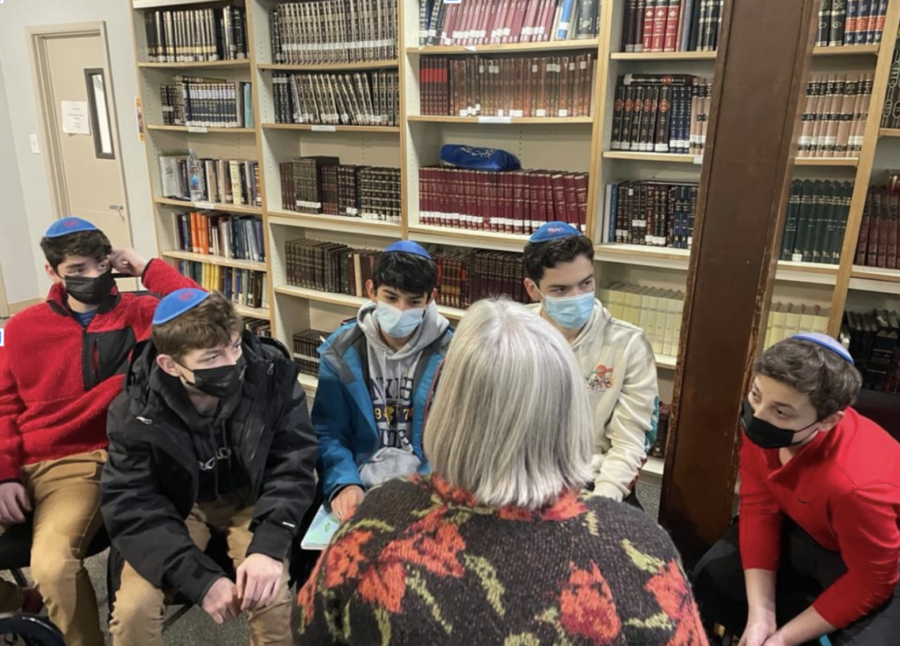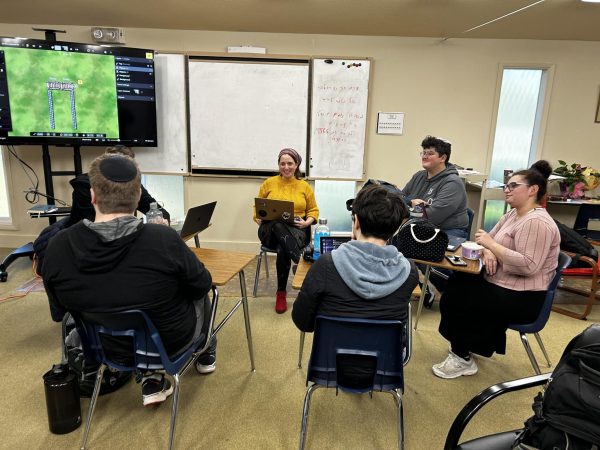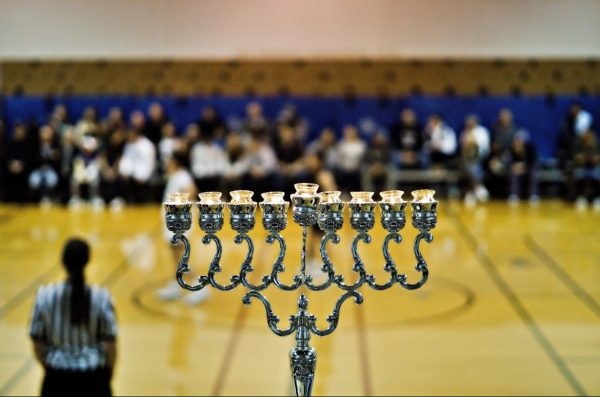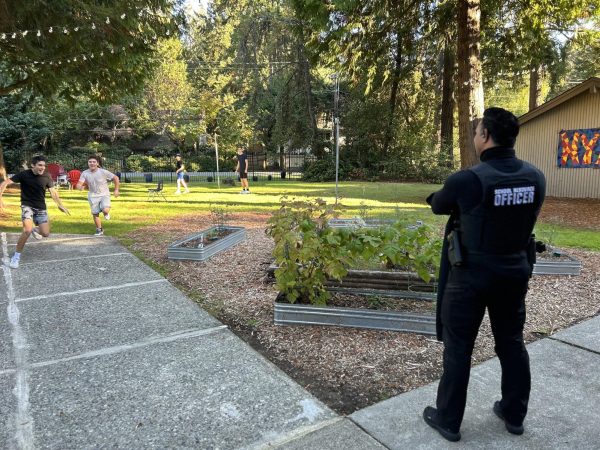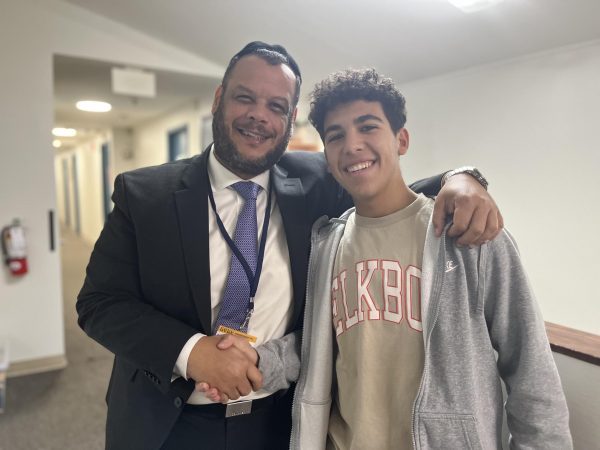November Town Hall tackles respect and improving school culture
On Thursday, November 18th, the NYHS community held a town hall on the subject of improving school culture through respecting others. NYHS held this town hall because of “a lack of respect for everyone in the community, so we just wanted to kind of have a conversation about it,” said Student Council Agenda Chair Eliana Menashe.
The discussion was a follow up to the last town hall about introducing an off-campus lunch option. Language Arts teacher Marcy Park said the community needed to work on their respect before these privileges would be granted. “We need to improve our school culture,” she said. “One thing we can improve on is respect.”
At town hall, the whole school comes together to discuss current schoolwide, local, or societal issues. A member of the agenda committee (the student government committee responsible for planning and executing town hall) introduces a scenario, and community members — teachers, students, board members, parents, and anyone else who joins town hall that day — discuss their opinions.
The hour-long event began with small-group discussions about people’s personal contributions to school culture, and what roles everyone plays in the classroom and also how that affects those around them. Menashe provided a scenario for everyone to discuss: a student comes to class seven minutes late and disrupts the class. Because he is late, he misses a five-point warm up, which is a short entry task that’s worth five points toward one’s grade. He’s angry about being punished for going to the bathroom, which he believes is a valid reason to be late, and argues with the teacher about getting the points back.
After everyone reconvened, Menashe posed the question: “should the student keep arguing with the teacher?” Ella Bender, a senior, said the teacher is in the right, because the student is disruptive. Galit Berezansky, also a senior, replied that the teachers should understand if it happens sometimes, but if it’s a frequent problem, it’s on the student. Many debated about whether the issue was the tardiness or the arguing with the teacher. The consensus was that tardiness can be excused if it’s not too frequent and for valid reasons, but disrupting the class and arguing with a teacher is not okay.
Arguments about how to improve school culture revolved around what respect actually means and why it is worth improving. Several students made the argument that the five points won’t affect one’s grade very much. Sabrina Slapak, an NYHS math teacher, argued that being on time is an important skill for the real world. She gave the example that if your credit card bill is due the company won’t care if you’re “in the bathroom.” Then Tzippy Wiens, development associate, said that it is an important skill for college when you often have to get to your next class in a small amount of time. Zeeke Clayman, a senior, disagreed with the requirement for punctuality at college, saying that the professors don’t care if you’re on time or not. Rabbi Rothstein, Head of Judiacs, wrapped up the conversion by saying that students shouldn’t be arguing with teachers, especially during class, as it wastes learning time and is disrespectful.
Park believes that the conversation did improve the school culture, but she wants to see more action to improve respect. She would love to see people follow instructions the first time more instead of needing to be reminded several times. However, she has noticed that people are more mindful when given reminders of how to be respectful. Park wants everyone to remember “how people’s behavior affects others, and that people don’t always realize that their actions affect others, not just the person they’re directly dealing with.”

